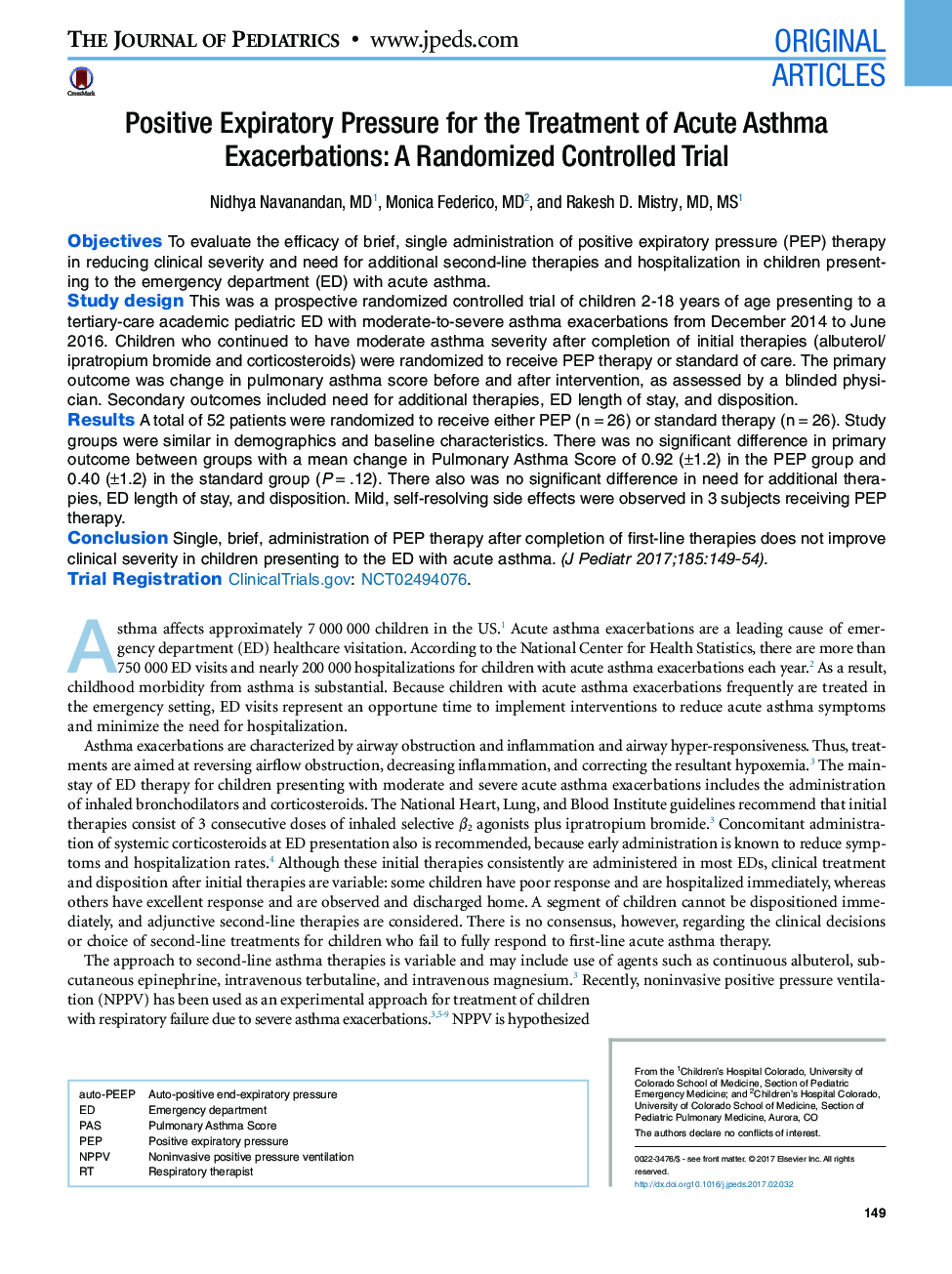| Article ID | Journal | Published Year | Pages | File Type |
|---|---|---|---|---|
| 5719131 | The Journal of Pediatrics | 2017 | 8 Pages |
ObjectivesTo evaluate the efficacy of brief, single administration of positive expiratory pressure (PEP) therapy in reducing clinical severity and need for additional second-line therapies and hospitalization in children presenting to the emergency department (ED) with acute asthma.Study designThis was a prospective randomized controlled trial of children 2-18 years of age presenting to a tertiary-care academic pediatric ED with moderate-to-severe asthma exacerbations from December 2014 to June 2016. Children who continued to have moderate asthma severity after completion of initial therapies (albuterol/ipratropium bromide and corticosteroids) were randomized to receive PEP therapy or standard of care. The primary outcome was change in pulmonary asthma score before and after intervention, as assessed by a blinded physician. Secondary outcomes included need for additional therapies, ED length of stay, and disposition.ResultsA total of 52 patients were randomized to receive either PEP (nâ=â26) or standard therapy (nâ=â26). Study groups were similar in demographics and baseline characteristics. There was no significant difference in primary outcome between groups with a mean change in Pulmonary Asthma Score of 0.92 (±1.2) in the PEP group and 0.40 (±1.2) in the standard group (Pâ=â.12). There also was no significant difference in need for additional therapies, ED length of stay, and disposition. Mild, self-resolving side effects were observed in 3 subjects receiving PEP therapy.ConclusionSingle, brief, administration of PEP therapy after completion of first-line therapies does not improve clinical severity in children presenting to the ED with acute asthma.Trial RegistrationClinicalTrials.gov: NCT02494076.
